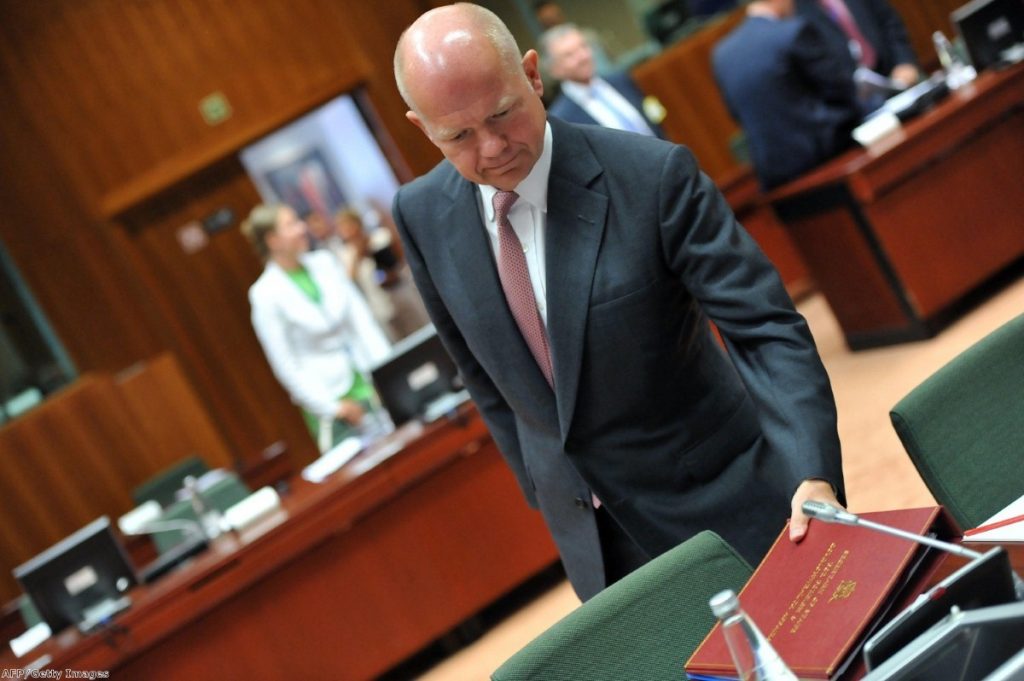The humiliation of Britain: International outcry following Miranda detention
Britain is being subject to embarrassing criticism on the global stage, after international bodies reacted angrily to the nine-hour detention of David Miranda.
The Council of Europe, which polices human rights on the continent, strongly condemned the action in a letter to home secretary Theresa May.
"These measures, if confirmed, may have a potentially chilling effect on journalists' freedom of expression as guaranteed by Article 10 of the European Convention on Human Rights [ECHR]," chief executive Thorbjorn Jagland wrote.
"I would therefore be grateful to you if you could provide information on these reports and comment on the compatibility of the measures taken with the UK's obligations under the convention."


Brazil has decided against any tit-for-tat move against British citizens, despite an angry reaction in Miranda's home country.
But foreign minister Antonio Patriota told British foreign secretary William Hague the arrest was "unjustified" and evidence of an excessive response to fears of terrorism.
Even Russia, which was criticised in 2011 for expelling Guardian journalist Luke Harding for violating accreditation rules, weighed in against the UK.
"The steps taken by the British authorities against The Guardian newspaper conflict with their claims of respect for human rights, including freedom of the press, journalists’ rights and the protection of human life," Foreign Ministry spokesman Alexander Lukashevich said in a statement posted.
"It is a manifestation of double-standard policies applied by London regarding human rights."
The Miranda detention and reports of GCHQ staff overseeing the destruction of hard drives at the Guardian has been widely reported in the foreign press and could do serious damage to Britain's reputation for freedom of speech.
Miranda's lawyers today secured a limited injunction preventing authorities accessing the files on hard drives they took from him after his nine-hour detention.
The court ruled that the police could not continue to search the files for evidence of criminal activity.
The ruling appears to have brought to a halt an embryonic police investigation.
The Met's lawyer said: "I am not prepared to alert defendants here or abroad about the criminal investigation that has begun."
But police were allowed to keep on investigating Miranda's property if the purpose was to protect national security.
The court ruled authorities could not inspect or distribute the data to a foreign government unless it was to protect national security or because Miranda was involved in the commission, instigation or preparation of an act of terrorism.
Miranda's legal team argued that authorities misused schedule seven of the Terrorism Act 2000 when they detained Miranda.
The power is very broad and allows officials to detain people without reasonable suspicion, but it has some significant limitations, including that it can only be used to establish whether someone is a terrorist.
A terrorist is defined by the legislation as someone who "is or has been concerned in the commission, preparation or instigation of acts of terrorism".
That is subtly different to the aim outlined by May in radio interviews yesterday, in which she said authorities could stop someone who possessed "information that could help terrorists".
Former lord chancellor Lord Falconer also said there was no legal basis for the detention and that the Met did not have the power to detain someone who was in transit and had not formally entered the UK.
The row is increasingly splitting the coalition down the middle, with Nick Clegg adopting a markedly more critical response than the Tory home secretary.
Liberal Democrats are awaiting the report into the incident by independent terrorism reviewer David Anderson but they are already making it clear that they sympathise with the idea that the police should lose the ability to detain people if they have no suspicion about their activity.
There may also be movement in party policy on the authorities' ability to confiscate the detainee's electronic equipment.
But May has already ruled out watering down schedule seven any further than pre-existing plans to lower the time limit on detention.
That chimes with public opinion, which is broadly sympathetic to the law.
A YouGov poll yesterday afternoon – the first on terror laws since the Miranda arrest – found 66% of people supported schedule seven, compared to 22% who opposed it.
However, the public view was nuanced.
Forty-two per cent of people believed the act should be changed so people could only be detained where there was "reasonable suspicion" of involvement in terrorism, compared to 33% opposed.
A majority of 50% to 33% said the police acted unreasonably in not returning Miranda's equipment.
Forty-four per cent thought the action against Miranda was inappropriate.
Forty-two per cent of people supported the Guardian decision to publish stories about state surveillance, compared to 38% opposed.
But people also supported David Cameron's decision to ask Cabinet secretary Jeremy Heywood to get the Guardian to destroy the files, by 43% to 40%.

